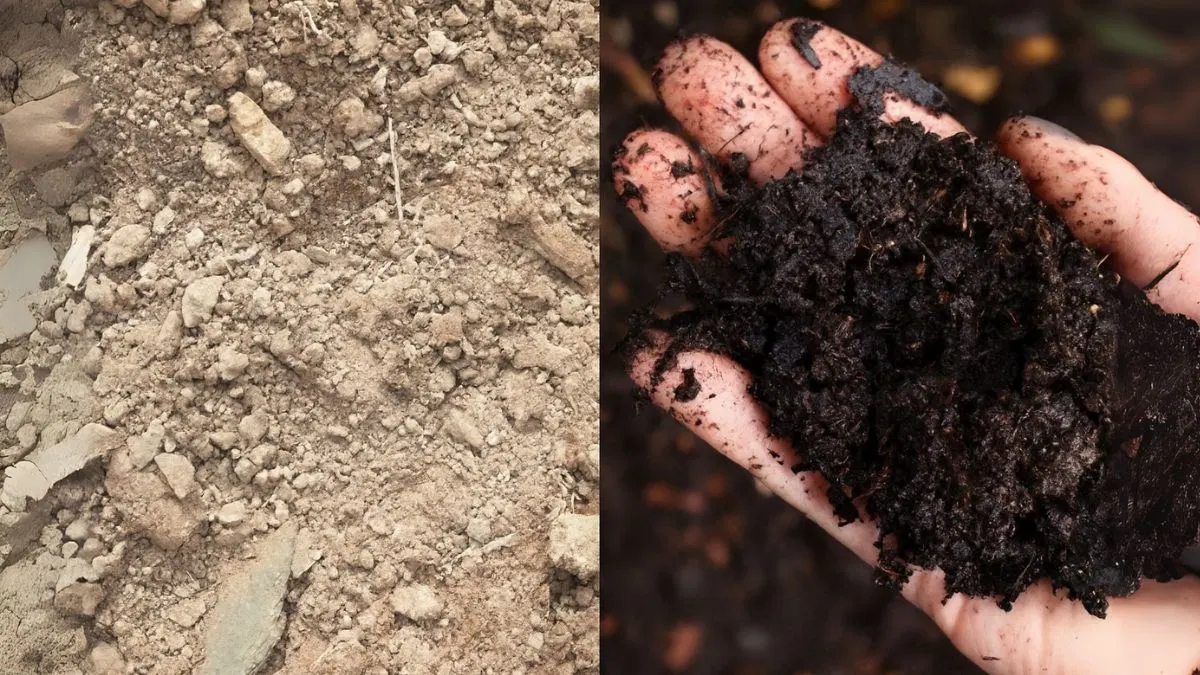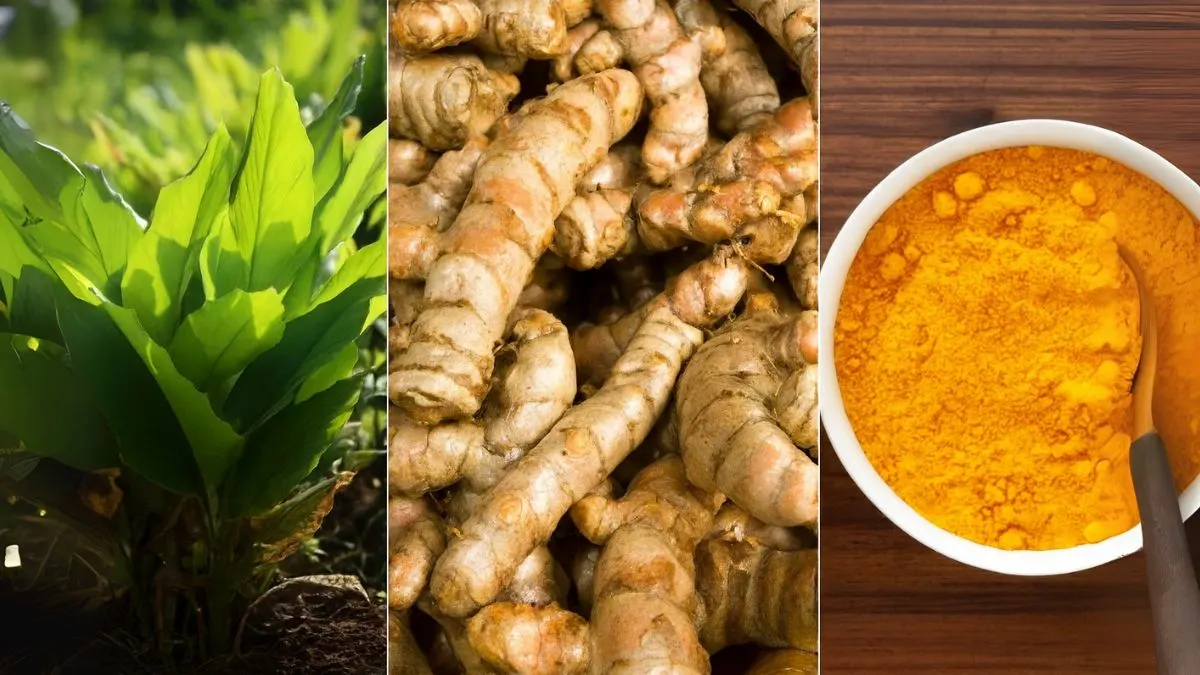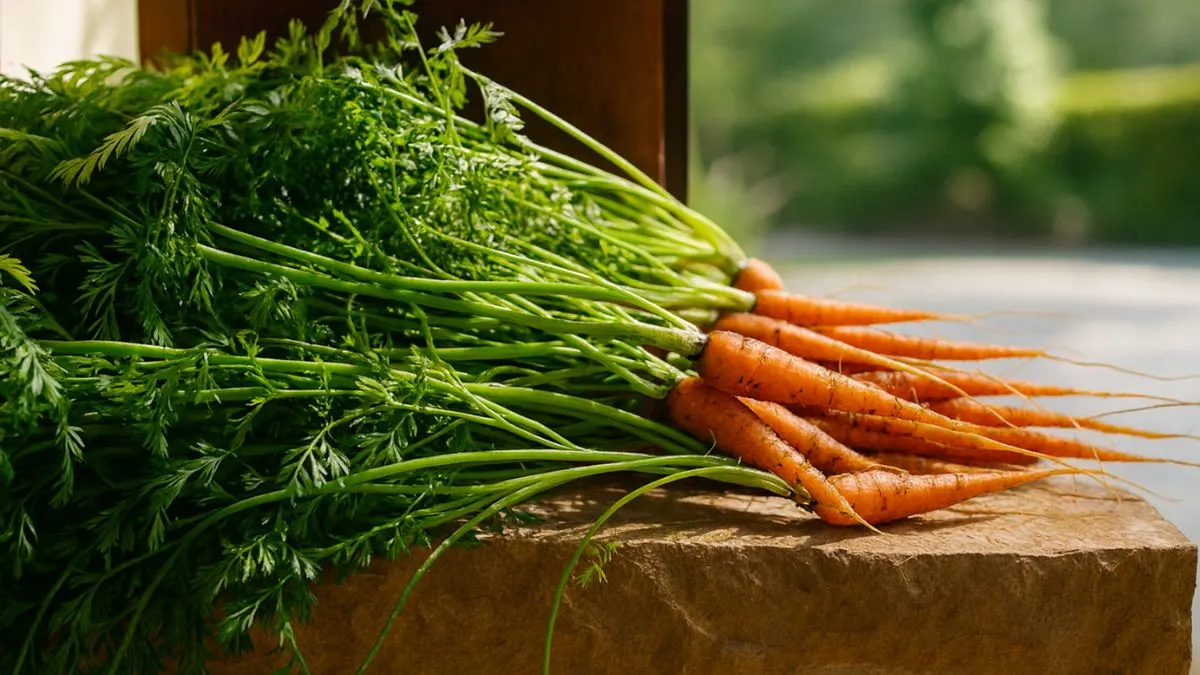Healthy soil is the foundation of a thriving garden. When your soil is rich in nutrients, plants grow faster, produce more flowers, and resist pests naturally. Early in my gardening journey in Vancouver, I used to focus only on watering and sunlight. But after a disappointing tomato harvest, I realised my soil was starving. The solution? Feeding the soil with simple, natural amendments—most of which were already in my home or garden.
Let’s explore 8 simple ways to add nutrients to your soil so you can grow stronger, healthier plants.
1. Compost – Nature’s Black Gold
Traditional compost is one of the most effective ways to improve soil fertility. It’s made by decomposing kitchen scraps, yard waste, and organic material into a nutrient-rich amendment.
Benefits:
- Improves soil texture and water retention.
- Supplies a balanced mix of nutrients.
- Feeds beneficial microbes.
I add compost to my vegetable beds twice a year—spring and fall—and it’s transformed my yields.

2. Manure – Powerful Organic Matter
Manure from cows, horses, chickens, or rabbits is loaded with nitrogen, phosphorus, and potassium. Always age or compost it first to prevent burning your plants.
Why It Works:
It slowly releases nutrients, ensuring plants have a steady food supply. In cold Canadian winters, manure helps insulate soil, keeping microbial activity alive longer.
3. Cover Crops – Green Fertilizer
Cover crops like clover, rye, and alfalfa protect bare soil in the off-season. When turned into the soil, they add organic matter and nutrients.
Extra Tip: Plant nitrogen-fixing crops like peas and beans to naturally boost nitrogen levels. This reduces the need for synthetic fertilizers.
Also Read: Grow Lovage Once, Harvest for Years
4. Mulch – Moisture and Nutrients in One
Mulch made from shredded leaves, bark, or straw keeps soil moist, regulates temperature, and breaks down to add nutrients.
Why It’s Great:
- Reduces weeds.
- Prevents soil erosion.
- Adds organic matter over time.
When I started mulching my perennials, I noticed less watering and stronger root systems.
5. Seaweed – A Coastal Superfood for Plants
Seaweed is rich in potassium, magnesium, and trace minerals. You can use it fresh (rinsed to remove salt) or as a dried meal.
Benefits:
- Enhances plant disease resistance.
- Improves root growth.
- Acts as a natural growth stimulant.
Gardeners along the coasts of the USA and Canada swear by it for boosting vegetable production.
6. Wood Ash – Alkaline Mineral Booster
Wood ash from untreated wood contains calcium carbonate, potassium, and trace minerals.
Best For:
- Neutralising acidic soil.
- Providing essential nutrients for crops like tomatoes and brassicas.
Be careful—wood ash can raise soil pH, so test your soil first to avoid over-alkalising.
7. Coffee Grounds – Morning Boost for Soil
Used coffee grounds add nitrogen, improve soil structure, and attract earthworms.
How to Use:
- Mix into compost.
- Sprinkle directly around acid-loving plants like blueberries and azaleas.
They also improve drainage in heavy clay soils—something I learned after years of gardening in Ontario.
Also Read: Low-Maintenance, High-Flavor: Perennial Herbs for Endless Harvests
8. Grass Clippings – Quick Nitrogen Fix
Fresh grass clippings are an excellent source of nitrogen. Spread them as mulch around plants or add them to compost.
Benefits:
- Feed plants quickly.
- Keep the weeds down and don’t have to water as often.
- Add organic matter to improve soil structure.
Bonus Tip: Test Your Soil First
Before adding amendments, test your soil to identify nutrient gaps. This ensures you add exactly what your garden needs.
Worm Casting for Nitrogen or Alfalfa Meal
Along with these eight methods, worm casting for nitrogen or alfalfa meal are excellent natural boosters. Worm castings provide slow-release nutrients, while alfalfa meal contains a natural growth stimulant called triacontanol.
Summary Table of Soil Nutrient Boosters
| Amendment | Main Nutrients | Extra Benefits |
| Compost | Balanced NPK | Improves texture |
| Manure | N, P, K | Insulates soil |
| Cover crops | Nitrogen | Prevents erosion |
| Mulch | Organic matter | Weed suppression |
| Seaweed | K, Mg, trace minerals | Disease resistance |
| Wood ash | Ca, K | Raises pH |
| Coffee grounds | Nitrogen | Attracts worms |
| Grass clippings | Nitrogen | Moisture retention |
Also Read: The Secret Power of a Single Spider Plant Leaf (Plus Growing Tips!)
Feed Your Soil, Feed Your Plants
Healthy soil equals healthy plants. Whether you use compost, manure, cover crops, mulch, seaweed, wood ash, coffee grounds, and grass clippings, or supplement with worm casting for nitrogen or alfalfa meal, the key is consistency.
Adding organic matter is a more economically feasible alternative for improving soil than relying on expensive chemical fertilizers. I’ve seen my garden transform year after year simply by feeding the soil naturally—and you can too.



